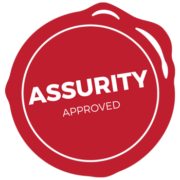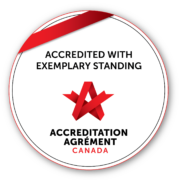Accreditation Bulletin #4 – Infection Prevention and Control
BULLETIN #4 – Infection Prevention & Control
Infection Prevention and Control (IPC) covers hand hygiene education & training, compliance with accepted practices, and infection rate tracking and analyzing. Within the IPC there are 3 Required Organizational Practices (ROPs) that must be met to successfully complete Accreditation which will occur October 17 – 21, 2022.
Who is on your Infection Prevention & Control Committee (IPCC)?
Kim Scott (Chair), Smitha Varghese, Anitha T, Leanne T, Angela R-F, Linda W, Trish G, Moreen R, Annette F, FHA IPC representative.
How will the ROPs be evaluated?
Surveyors will tour Menno Home & Menno Hospital and test compliance for each of the ROPs. Specifically they will gather information by:
- Talking and listening to team members, families, residents, volunteers, and community partners such as physicians, pharmacists, and contractors.
- Observations of what is taking place as they tour the sites
- Reviewing resident health records and/or Employee files
Who needs to be aware of the Infection Prevention and Control ROPs?
Surveyors will meet with team members, residents, families, students and volunteers so everyone should be aware of this IPC theme and the associated ROPs and priority practices. If you are asked a question on an unfamiliar topic, please refer the surveyor to the appropriate individual or supervisor.
ROP #1: HAND HYGIENE COMPLIANCE
Surveyor Question: How do we evaluate compliance with accepted hand hygiene practices?
Answer: We evaluate hand hygiene compliance by directly observing (audit) the practice using the Speedy Audit tool.
Evidence: How do we do this?
- We have a policy (AP 5.05 Infection Prevention & Control Program)
- We have trained Hand Hygiene auditors who regularly conduct peer audits.
- Audits are reviewed with the Infection Prevention and Control Committee, sent to leaders, and then shared with team members at unit team meetings and department meetings
- Audits are posted on our bulletin boards and visible to residents, families, visitors, and volunteers.
- Concerns and trends are followed up on
- Our audits provide valuable information to our leaders and staff in developing and implementing strategies to improve hand hygiene. For example, based on feedback, we have installed more hand sanitizers in targeted areas.
ROP #2: HAND HYGIENE EDUCATION AND TRAINING
Surveyor Question: What education and training have you received on hand hygiene?
Answer: We receive regular education assigned to us in Surge Learning, we have visual signs posted throughout our site, we receive hands on education at unit team meetings, and direct feedback by hand hygiene peer auditors.
Evidence: How do we do this?
- Annual Hand hygiene education for all staff and volunteers
- Hand hygiene education at orientation and on Surge Learning (ongoing)
- Annual COR certification
- Hand hygiene is discussed with all families during move-in
- Posters throughout the building
- Hand hygiene is discussed at family councils and resident councils
- Education – Fact sheet – posted in Newsletter
ROP #3: INFECTION RATES ARE TRACKED AND ANALYZED
Surveyor Question: How do we track infection information, analyze it, and communicate this information throughout the organization?
Answer: We track infection rates, analyze the information to identify clusters, outbreaks and trends; this is shared throughout the organization.
Evidence: How do we do this?
- We track infections by completing the infection log monthly
- Complete infection surveillance sheets for all infections
- We have an Infection Prevention and Control Committee where we analyze monthly data
- All outbreaks are reported to our Infection Control Lead (Kim Scott), who follows up according to the infection control manual’s outbreak management guidelines from FHA
- Outbreaks are managed in partnership with health authority medical health officers.
- Infection rates are displayed on a report sheet every month; the graph is shared with team members at unit/department meetings.
- Outbreak information is shared at monthly Leadership team meetings and quarterly at the Quality Improvement Risk Management Board committee (QIRM).
- We have a Policy: APS 5.05 – Infection Prevention and Control Program
What are some sample questions that surveyors may ask about the Infection Prevention and Control theme?
- How do you get regular information about infection control issues?
- Do you know about the infection rates within your care home?
- Do you know where the hand hygiene audit results are posted?
- How easy was it for you to get your flu/covid vaccination at work?
- What would you do if you suspected a co-worker or resident had an infectious disease?
Thank you for your support in making this Accreditation Survey another successful one!






